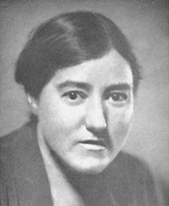David Allen joined the 九州影院 as a librarian in 2006. His interest in information, librarianship and knowledge management started six years prior, after being inspired by a librarian friend at Thomas Jefferson University in Philadelphia, US.
At the time, the university was embracing technology – in particular, how IT and 3D modelling were used to improve teaching. Back then technology enhanced learning was still in its infancy, and David, motivated by his friend's enthusiasm and vision, identified opportunities in aligning the work of the library service with the wider organisational goals of delivering a high quality student experience.
Continue reading as David shares with us how he manages life as a librarian at our society library and keeps information flowing, even in a pandemic.
A significant aspect of my work is researching the genealogy of scientists who have made considerable contributions to chemistry. It's fascinating to put a face to a name, to explore an individual's family history, their life experiences and influences.
A day in the life of an RSC information professional
Working at the 九州影院 has been a life-long commitment supporting members, non-members, and staff. I now solely manage our library at Burlington House, in London, UK. To prevent feeling isolated and ensuring I stay regularly connected with my peers, I'm part of a small dedicated meet up of fellow society librarians in the Burlington House quadrant, supporting each other and sharing ideas and experiences.
Managing the enquiry service in itself is a full-time role; with collection enquiries, book loans, undertaking research and providing copies of materials from the collections. I’ve found the RSC’s Publishing Platform has been a pivotal component in supporting these queries.
A significant aspect of my work is researching the genealogy of scientists who have made considerable contributions to chemistry. It's fascinating to put a face to a name, to explore an individual's family history, their life experiences and influences.
My role also involves managing the extensive physical and digital library catalogue, ensuring it's always up to date and easy to use. This ties in with the Virtual Library resources where I make sure this suite of third-party resources is full of new content and operating effectively.
The part of my role that I find fascinating is managing our . Whilst reviewing the large amounts of untapped content like letters, minutes and photographs, every now and again I’ll discover something forgotten in the archives.
Alongside my daily responsibilities, I advise other teams within RSC and regularly support them with advice, guidance, research, events and publications relating to the Historical Collection and Institutional Archive.
Unearthing unknown chemists
The most rewarding part of my role is writing information booklets on aspects of the Historical Collection, especially those projects that highlight the achievements of the lesser-known and forgotten people. Doing so brings the development and evolution of the chemical sciences from the 16th to the 20th century period to life, and makes it more accessible to the broader community. The following are just two examples of lesser known chemists.
 Mabel Elliott exposed a First World War German spy ring as she became suspicious of a letter and envelope that once tested revealed messages written in lemon juice.
Mabel Elliott exposed a First World War German spy ring as she became suspicious of a letter and envelope that once tested revealed messages written in lemon juice.

Herbert Garland lost in the sands of time, advised TE Lawrence how to employ explosives to derail troop trains and to break communications lines. Sadly Herbert was never recognised for his contribution to Lawrence’s First World War desert exploits by filmmakers in Lawrence of Arabia.
The most notable project was to write short biographies and collect images of the Fellows remembered on our war memorials. Previously, these had been mere lists of names. Being able to see what they looked like and understand their lives and their experiences gives us a greater appreciation of them as relatable individuals and the sacrifice they made for their country.
Adjusting to challenges
Taking on the management of a junior team member was a new challenge to me and something I had had no experience doing. I found it was very time consuming, and really impactful on my day-to-day duties. However, I did enjoy having someone to bounce ideas off, and seeing them grow and develop was very rewarding.
Once this team member left, leaving me to manage the library on my own, it gave me the opportunity to introduce streamlined and efficient systems and processes to ensure our library could continue to run smoothly with just one member of staff. My responsibilities were reviewed and resulted in a number of my time-consuming tasks being identified as no longer required. This allows me to continue supporting our library and users efficiently.
Adapting during the global pandemic
As the library has been closed to members, the use of on-site resources has ground to a halt. However, on the flip side, the number of enquiries for access to the Virtual Library has increased, which goes to show that having these resources available is paramount. Fortunately, as we already have a healthy repertoire of online resources, we've been able to support our members rather than leave them entirely in the dark.
We have adapted as much as physically possible. However, some services have had to stop altogether, including book loans and copies of physical materials. Although our members have been understanding, it can also be frustrating for both them and us, and we're unable to provide a fully inclusive service.
The new norm post COVID-19
Over the past 10 years, walk-in usage of our library has declined, with more emphasis on the provision of digital content. Digital access has now become standard practice, with people accessing materials across a variety of platforms. With the sheer volume of online resources we have available, it's enabled us to cope very well during the pandemic.
Moving forward post COVID-19, I don’t expect there to be a great deal of impact for us as we have already made the requirements to support distance learning. However, in the immediate future, I believe that prioritising the safety of library staff and users are paramount in securing continued footfall.
Advice for your peers
Information professionals have to juggle multiple roles and responsibilities, so it's crucial to develop a support network locally, nationally, and internationally, to share ideas and experiences.
Having an extra pair of hands is incredibly helpful; however, it is also key to ensuring that everyone is aware of top priorities and work collaboratively to achieve these goals. All staff and stakeholders need to be on board, otherwise, it can be challenging to manage, and ultimately the library suffers. If you're going into a management position, I would certainly see if there is any training or resources that you can utilise to prepare you for this additional responsibility if, as for me, it's a new experience.
To learn more about the support we offer to information professionals and access our digital toolkit, visit our librarian hub.
If you would like to get involved and share your experience, just like David, tell us by completing this short form.

